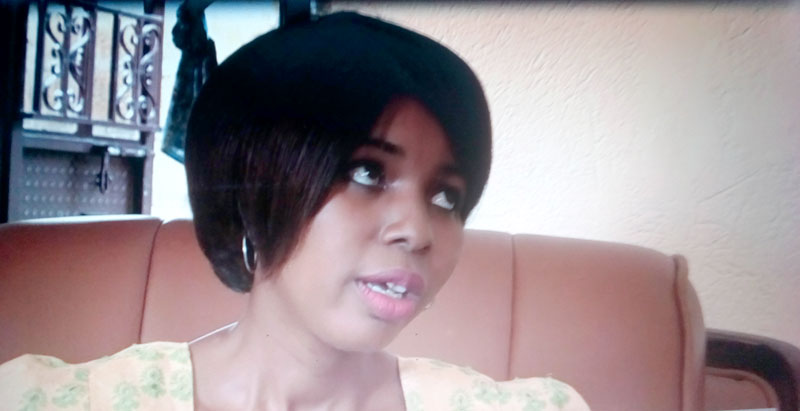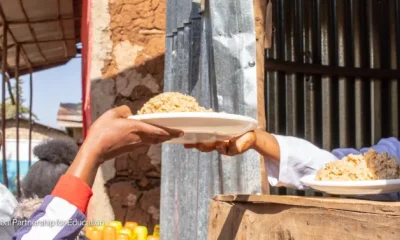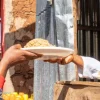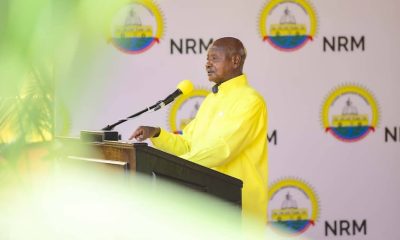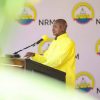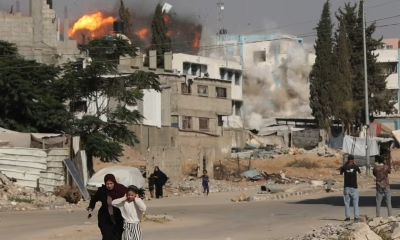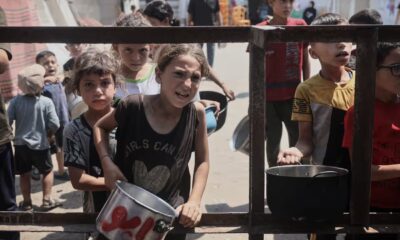human traffickingFeatures
Prayers and drugs in HIV/AIDS cure
The reality of HIV and AIDS, as a disease, and not witchcraft, hit Ugandans by 1987. Initially therefore, many of the people affected had turned to traditional medicine for healing. As this did not work, many people died. This drove others to turn to God for miracle cures.
Some of those who tried the Church eventually got healed. Among those is Ms. Olivia Katende, 21. She said that she had battled with HIV/AIDS for over five years; she had lost all the hope and peace of mind.
She said that she had no family support; and was living a life of fear and hiding from people because of the stigma people attached to the illness. Sensing that she had a long period of illness ahead of her, she escaped from home.
Then, accordingly she discovered “a new haven where only God could save me. I went to God’s Rock Church, Mpererwe in 2013 when I was badly off. I gave up my all to the Lord, prayed and fasted; and after some while, God relieved me of the illness,” Katende said.
First, she had to prove that she was actually healed. So she went to God’s Grace Medical Centre, located in Kawempe Mbogo, for a medical check-up. Earlier in 28th February 2013, the clinic had found her to be HIV-positive. However, almost a year later on May 8th, 2014, when she returned to the same clinic, and did a medical test, she was found to be HIV-negative. She attributes all this to the power of prayers and total dedication to God.
As she celebrates her miraculous healing, Katende has immersed herself into the Church’s work and become a voice for the others to seek God’s Kingdom. “I have spent two years now without taking my daily dose of ARV drugs; it was really stressing me up,” she said.
Speaking to Pastor Annet Nalugunju, the Head of God’s Rock Church, she said: “Total healing is possible only if one surrenders his/her whole life to God.”
Katende thinks all is well and safe for her to start rebuilding her life again. “God is able to forgive your sins, some people contract HIV/AIDS as they attempt to commit the sins of love; but God is always there to forgive us for our sins.”
Pastor Nalugunju said that anyone seeking healing must realize their mistake, build faith in the Lord and start to repent. “Then, your soul will be cleansed. This way, God will truly forgive and heal you, just like Katende and so many other people we have been praying for from this Church.”
How long does it take for one to receive her miracle after prayers? Nalugunju said that it all depends on an individual’s commitment, dedication and faith in the power of prayer. “Give your soul and entire life to the Lord and let him work out for you. As pastors, we also pray to the best of our knowledge, and never holding back,” she adds.
Similarly, the Reverend Canon, Gideon Byamughisha, the co funder of African Network of Religious Leaders Living with Person Affected by HIV and Aids, shared part of his positive-living story. “For me, it all started in 1991 when my wife, Kellen, told me she was not feeling well. She had complications in her chest.
I took her to the hospital and it turned out she had pneumonia. The doctor then comforted me that there was nothing serious. She got her medication, and we returned home, pending a review session.
“The whole story was cut short,” he added. “Kellen never made it for the review session. She passed on the 30th April, 1991, the exact day she was to go back to the hospital for review.
“I feared for my life, being that we were a young couple trying to make it in life. I was worried and scared when I realized I needed to undergo an HIV and AIDS test in January 1992. But I picked up courage and went for test and confirmed my fears. Indeed, I was HIV-positive,” Canon Byamugisha said.
Added Byamugisha: “Knowing my status changed my entire perception on life. I think about it 24/7, especially on how to make it better.”
Unlike Katende, who after realizing her healing, abandoned drugs and resorted to prayers, Rev. Byamugisha embraced both prayers and taking doses of drugs to ensure that he would not relapse. He believes that Katende, too, should have adopted that strategy as he fears that she may get some set-back.
“I take my medicine as if there is no God. I pray to God as though there is no medicine. I use both because I need spiritual power as well as Medical Science to get healing, since they are all provided through God’s wisdom,” Byamugisha counsels.
He stressed that people should not refute the idea of instant miracle healing because miracles come in different forms. He said that, “It’s not worthy to boast about it. I got cured of cancer in 2015 following, a surgery for example, and I am sure if anyone prayed and his/her cancer varnished, then we all received healing.
I benefited from healing through medicine, while the other person could have benefited through prayers which I think all comes from the same source,” he advised. “It’s important if people get to understand that the God of Science is the same as that of prayers; this will make us with varied perceptions on Science and God, not to be intimidated or stigmatized.”
A physician at Mildmay Uganda and founder of Community Health Alliance, Uganda, Dr. Stephen Watiti, said that following God is just to help strengthen people’s faith, and above all, a way to change their behaviour but anyone found to be positive must stick to their drugs as prescribed by the doctor.
“It’s very hard to contain a viral disease by prayer,” Dr. Watiti adds. “I almost died in 1999 at the helm of the HIV and AIDS scourge, because I was diagnosed with AIDS, cancer and tuberculosis. I got enrolled on ART in 2000. My faith was just an addition to good adherence to my drugs and taking it at the right time.”
Dr. Watiti has been on ARVs for 15 years; he has never abandoned his drugs. “I got healed of the many opportunistic infections and diseases and took in the fact that AIDS is not curable, like Malaria, but can only be controlled.” He stressed that a miracle cannot be explained using Medical Science. “If anyone claims he or she was positive then turned negative, the only proof is testing again and again, not from the same source but trying out different specialists.”
Dr. Watiti said that HIV/AIDS is still an issue in Uganda, citing a United Nations (UNAIDS 2016) report of February 23rd, 2017, on the global HIV/AIDS situation.
It said that of up to 1.5 million Ugandans out of the 36.7 million people worldwide, living with HIV?AIDS, there are still 230 new infections daily. This is common among the youth, bringing the national HIV/AIDS prevalence to 7.3%.
Comments



